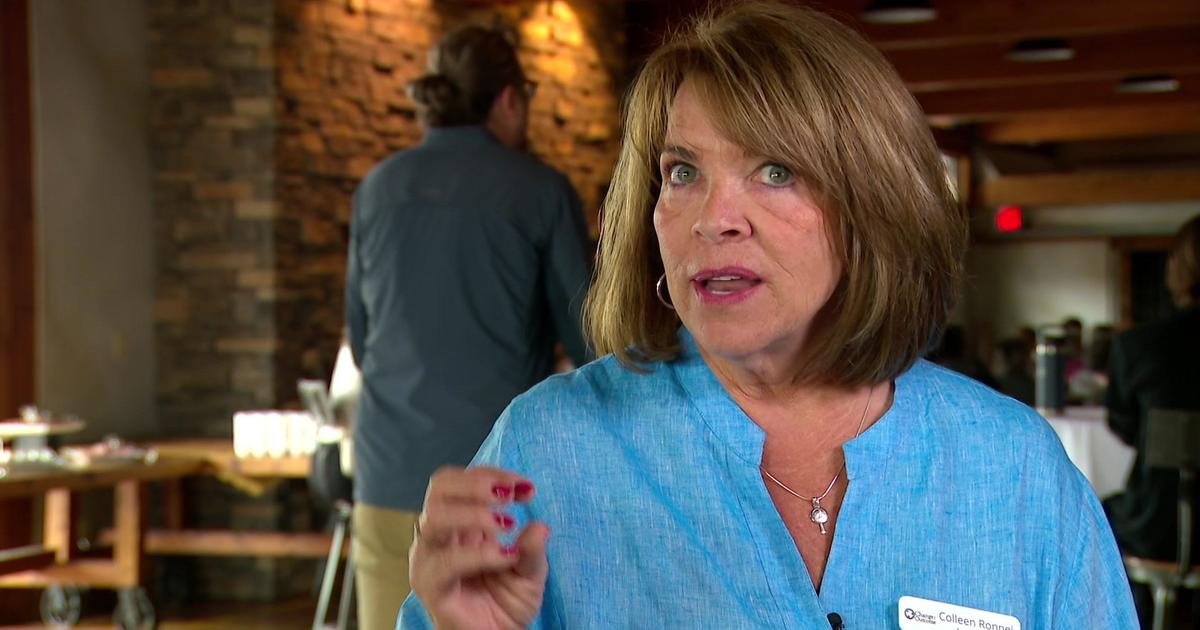Home-Care Workers Vote To Unionize
ST. PAUL, Minn. (AP) — Thousands of in-home health care providers in Minnesota voted to create their own union, the state announced Tuesday after tallying the results.
With the union now authorized, the Service Employees International Union, which organized the election, can negotiate with the state for wages and benefits for the estimated 27,000 eligible workers. About 60 percent of the roughly 5,800 voters who cast ballots approved unionization, the Bureau of Mediation Services said.
Union supporters who care for sick, elderly and disabled patients in their own homes celebrated the creation of their new union as a sign that better pay is on the horizon.
"We are now not invisible. We are 26,000 strong," said Debra Howze, a home care worker in north Minneapolis. The state has to "deal with a force to be reckoned with," she said.
Minnesota Republicans called the new union a violation of free association, pointing out that just 13 percent of the eligible voters supported unionization. A group that unsuccessfully fought to halt the election vowed to continue its legal challenge against the 2013 law that authorized the vote.
Here's what you need to know about the unionization vote:
HOW BIG OF A UNION?
The new union will represent about 27,000 personal care attendants, including those who didn't vote or voted against unionization. There are nearly 110,000 such workers in Minnesota, but only those who treat Medicare enrollees were eligible to vote in the union election. SEIU has said it won't require eligible members to join or pay "fair share" dues.
HOW DID IT HAPPEN?
The union election — the largest in the state's history, the SEIU said — was set in motion by a 2013 law passed by the Democratic-controlled Legislature authorizing unionization votes for in-home health care and day care providers. SEIU gathered more than 9,000 signatures to trigger the vote, which was conducted using mail-in ballots starting Aug. 1.
CHEERS AND JEERS
Though supporters cheered their new right to bargain with the state, opponents reiterated concern that the new union would represent all eligible workers. Just 5,800 of the 27,000 eligible home care workers voted in the election, and 40 percent voted against it.
"There are significant concerns about the conduct of this election given that barely one in 10 affected providers supported public sector unionization, but any regulations agreed to between the union and state could affect all care providers," Rep. Tara Mack, R-Apple Valley, said in a statement.
Union proponents were undeterred by the ballots cast against them.
"The bottom line is, it's a majority," said Sumer Spika, a home-care worker of six years.
LEGAL ACTION
Nine state-subsidized home care workers sued state officials and the SEIU in an attempt to halt the election, arguing the 2013 law is unconstitutional because it violates their right of free political expression and association. But a federal judge last week declined to stop the election, saying the challenge was premature until the tallying was complete, and said individuals wouldn't be required to join.
The National Right to Work Legal Foundation, which represented the workers, said Tuesday it plans to refile a motion for an injunction against the law now that the union is authorized.
"No one is opposing the right of individual homecare providers to freely associate with the union if they so choose, but the issue raised in this legal challenge is whether those individuals who don't want anything to do with the union can have it imposed on them," Mark Mix, the group's president, said in a statement. "That's why the providers' legal challenge to this forced unionism scheme will go forward."
WHAT'S NEXT?
It's unclear when SEIU representatives will meet with the state to begin bargaining.
"We just got the results," Spika said with an exasperated laugh. "We'd like to start as soon as possible."
The federal courts also recently cleared the way for a twin effort to unionize nearly 13,000 child care providers. The American Federation of State, County and Municipal Employees is leading the push for a day care operator unionization vote, which has not yet been scheduled. Opponents of their efforts have promised more lawsuits.
(© Copyright 2014 The Associated Press. All Rights Reserved. This material may not be published, broadcast, rewritten or redistributed.)



